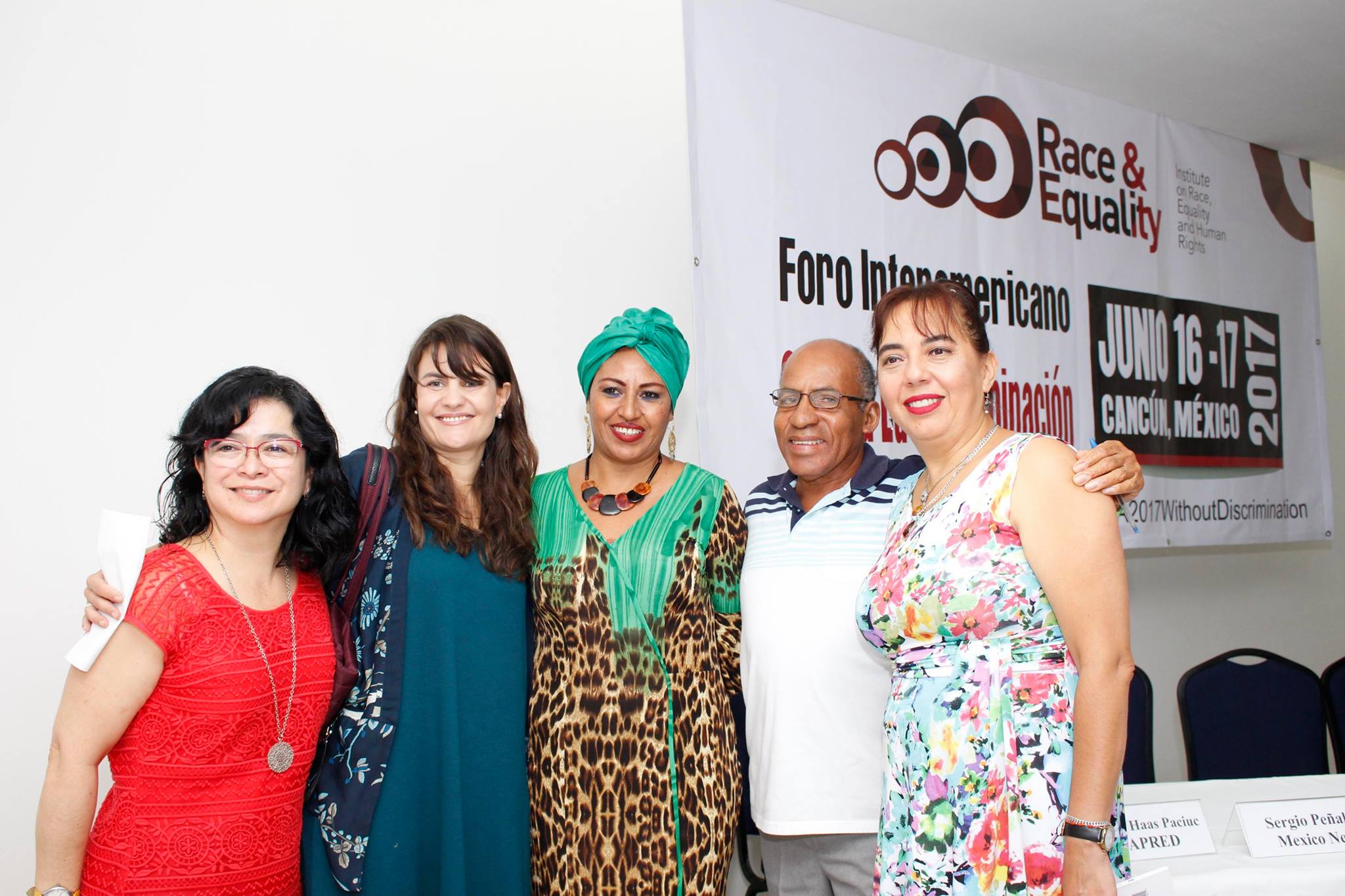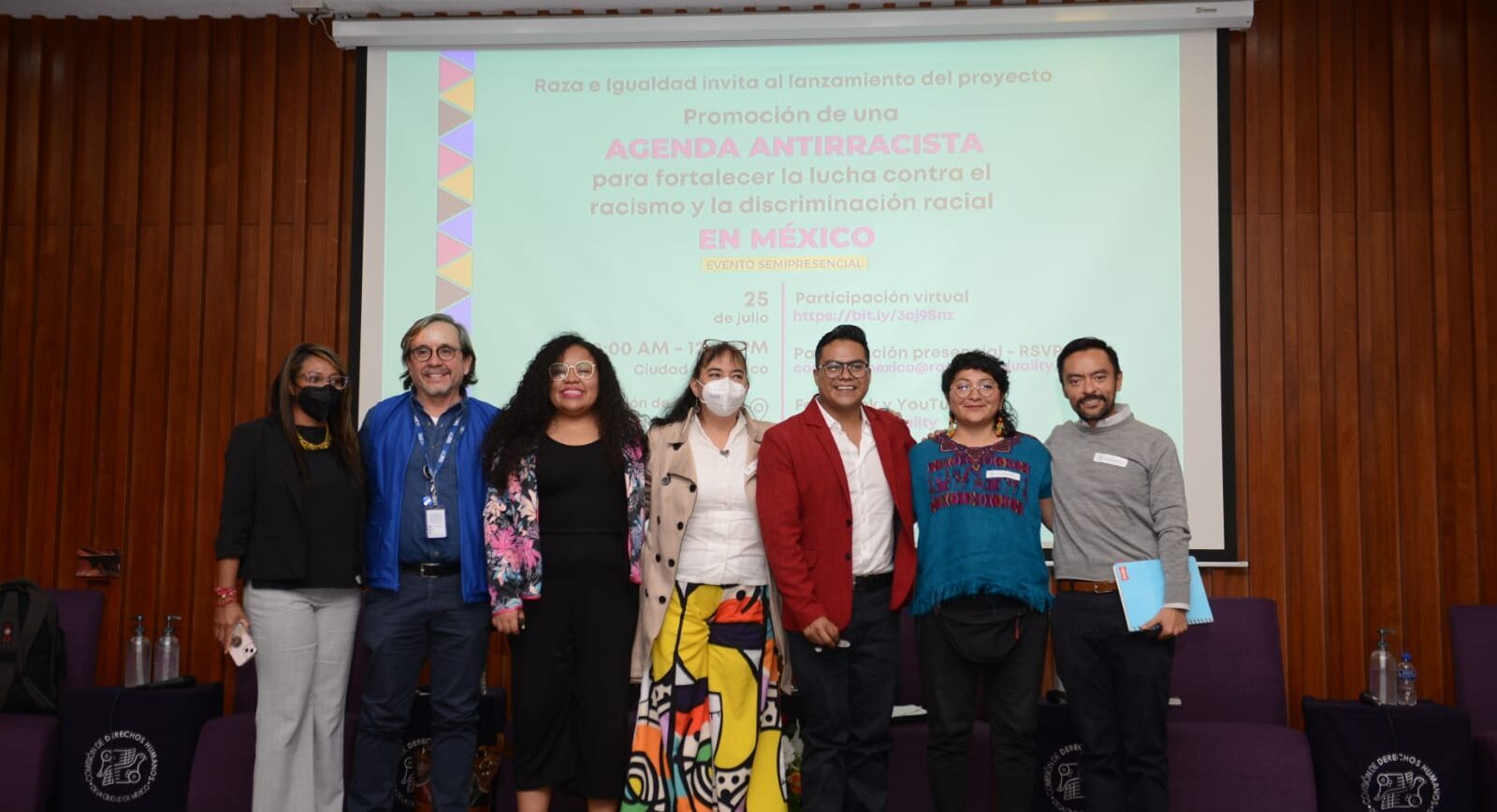Mexico processes a social context characterized by high levels of inequality and systemic violence, as evidenced by the existence of gaps and barriers that prevent historically excluded and marginalized communities, such as Afro-descendants, indigenous people, LGBTI+, women and displaced populations, from the full exercise of their human rights.
According to the National Survey on Discrimination (ENADIS), the population groups that face the most acts of discrimination based on certain conditions or characteristics of human diversity are as follows; first, LGBTI+ people with 37.3%, followed by Afro-descendant populations with 35.6%, who experience acts of discrimination based on appearance. Then, in seventh place, indigenous populations face obstacles to access to employment and discrimination related to their way of dressing, ethnic identity, accents and the use of regionalisms of indigenous origin, and in eighth are women over 18 years of age.
Our work in Mexico
Race and Equality’s work is centered on promoting various processes of training and providing capacity-building to civil society organizations, with the aim of strengthening their actions towards the defense and promotion of human rights, as well as their advocacy efforts with State institutions and international human rights organizations to position an anti-racist agenda in public policy, and to raise the voice of LGBTI + people.
Together with our partners in Mexico, we join forces to contribute to the implementation of the Inter-American Convention against Racism, Racial Discrimination and Related Forms of Intolerance (CIRDI). to which Mexico is a party. We also support promotional visits by human rights rapporteurs to the country, as well as the presentation of thematic reports to different bodies of the Universal Human Rights System and the Inter-American Human Rights System.

Our Achievements
- Race and Equality implemented the “Capacity Building Strategy for the 2020 Mexico Census Campaign” through a nationwide media campaign seeking to promote Afro-descendant self-identification with the ethnonyms included in the 2020 Census. The campaign, designed by the Colectivo para Eliminar el Racismo en México (COPERA), resulted in more than 2.5 million people self-recognizing as Afro-descendants in the country.
- Race and Equality has two unique, quality 2020 Census evaluation materials: “Inclusion of the Afro-descendant Self-Recognition Question in the 2020 Census of Mexico“, prepared by Professor Juan D. Delgado; and “Exploratory survey for the evaluation of the application of the black, Afro-Mexican or Afro-descendant self-recognition question in the 2020 Population and Housing Census“, prepared by Professor Marco Pérez.
- Race and Equality supports the participation of Afro-Mexican activists before the first and second hearings on Afro-Mexican issues held by the Inter-American Commission on Human Rights (IACHR), and at the Committee on the Elimination of Racial Discrimination (CERD) in 2019 in Geneva, Switzerland. We have also supported the participation of activists before the General Assemblies of the Organization of American States (OAS) and the UN Permanent Forum on People of African Descent.
- We have organized promotional visits on behalf of Commissioner Margarette May Macaulay of the IACHR Rapporteurship on the Rights of Persons of African Descent and against Racial Discrimination in 2017 and 2018, and Víctor Madrigal, the United Nations Independent Expert on Sexual Orientation and Gender Identity in 2023.
- We continue to join efforts so that more and more actors and institutions join an anti-racist agenda in Mexico, allowing us to generate concrete actions to combat the scourges of racism, racial discrimination and xenophobia.



